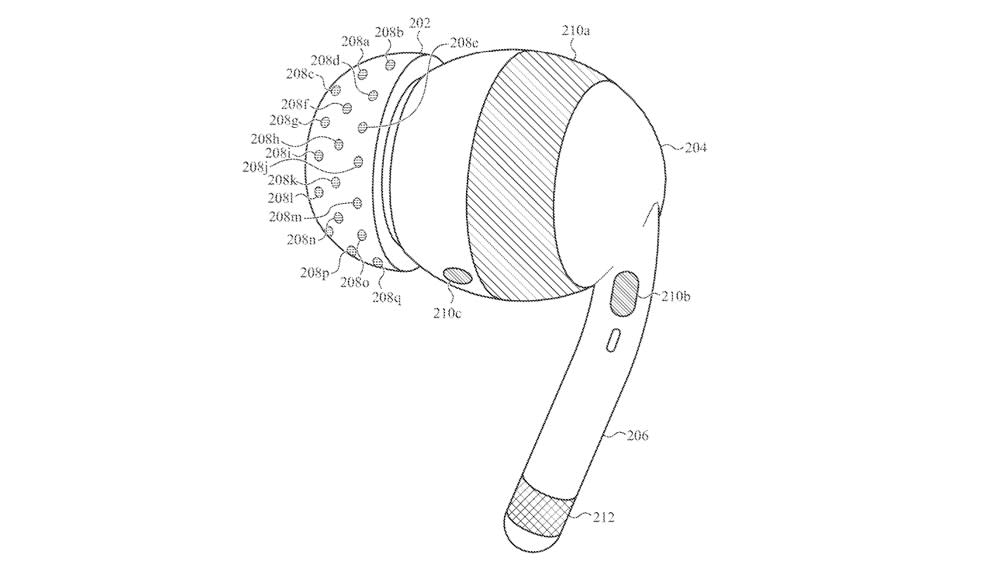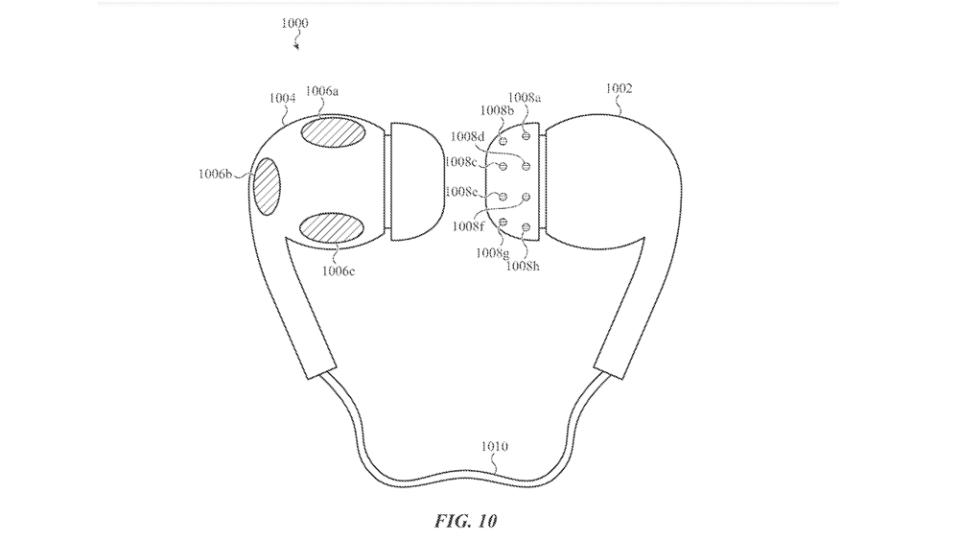Apple's wild new patent could turn its AirPods into a health device

New Apple patents crop up all the time, but one recent filing has received particular attention for what it could mean for the future of wearable tech in health tracking. A patent filed with the US Patent & Trademark Office describes what looks and sounds like AirPods with biosensors that can track brain activity.
Electrodes in the housing of the earphones would measure biosignals and electrical activity from the brain. That could include electroencephalography (EEG), electromyography and electrooculography (see our guide to the best AirPods Pro 2 prices for Apple's latest inner ears).

According to the documentation, Apple's idea is to reduce the visibility of the electrodes currently used to measure brain activity by placing them in the outer ear on a nonplanar surface in the housing of its device. It would include multiple active and reference electrodes that can adapt to measure different users' biosignals in varying conditions.
While the patent doesn't specify use cases, the earphones could presumably be paired with an app on another Apple device to read the data. It's not hard to imagine them being used in connection with an Apple Watch, expanding on the Watch's existing health-tracking metrics, but they could also have uses paired with Apple's upcoming Vision Pro.

Some have suggested that data collected from the AirPods could, for example, tell you when you need to take a break, what type of music makes you more productive, and could add to sleep tracking data currently provided by using an Apple Watch with its iPhone Health app (see the best current apple watch prices below).
There are many questions about whether the average person has any need for this kind of data, but Apple could even enter the medical tech arena. Some suggest that the device might even be able to detect things like biomarkers for the early onset of Alzheimer's. Alas, I don't think they'll allow us to turn the volume of our music up or down by merely thinking it like some people are hoping.
